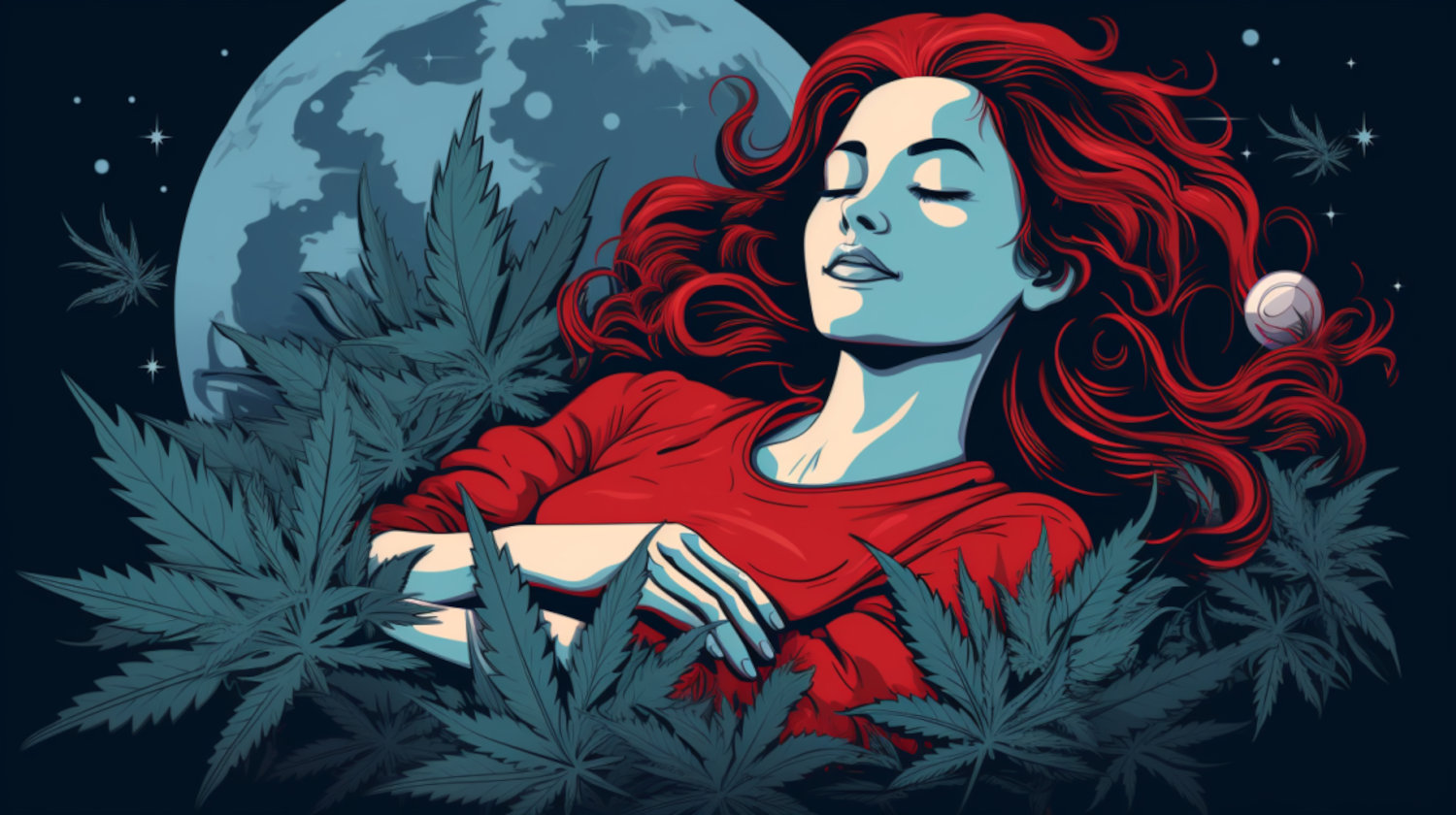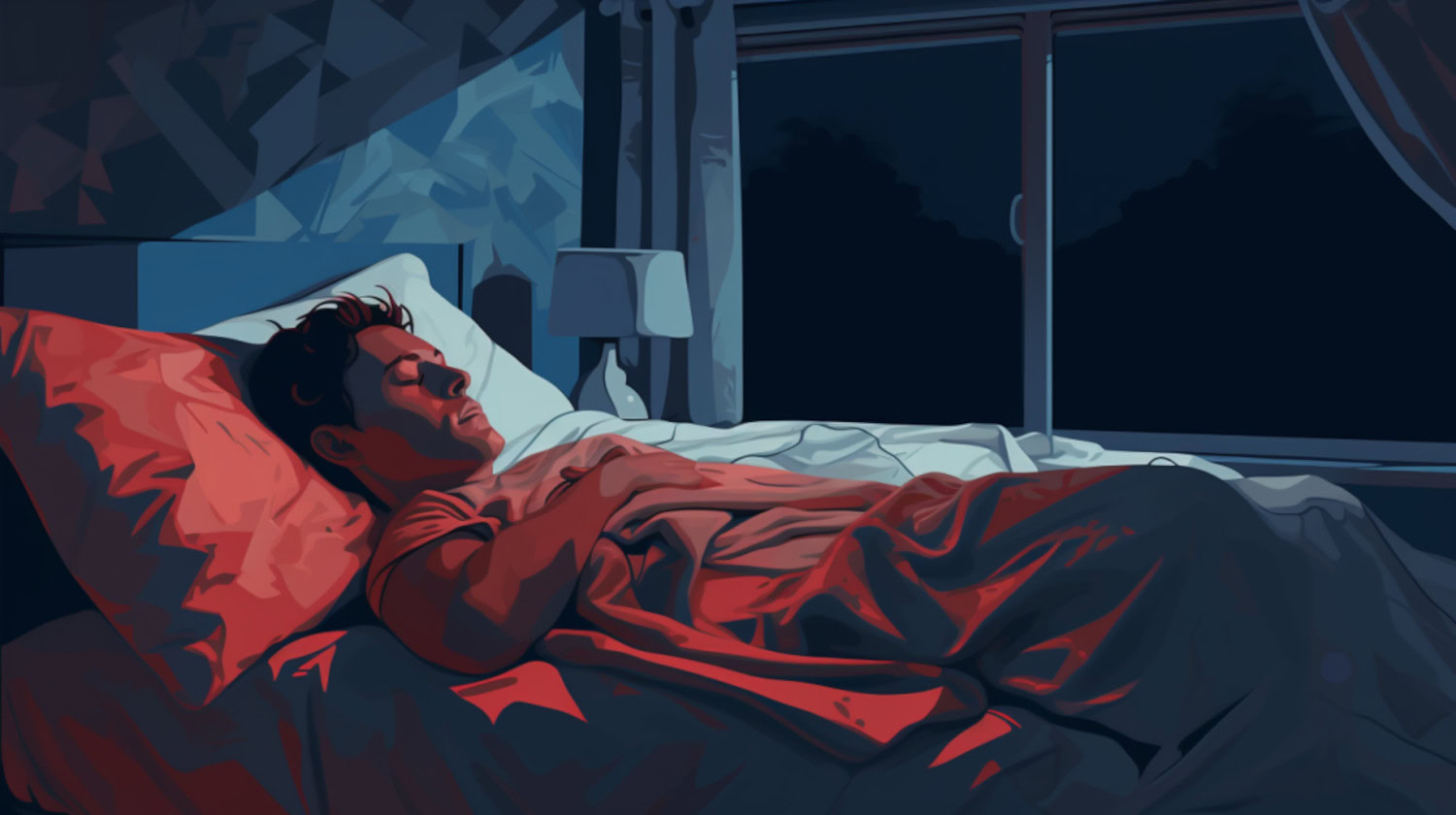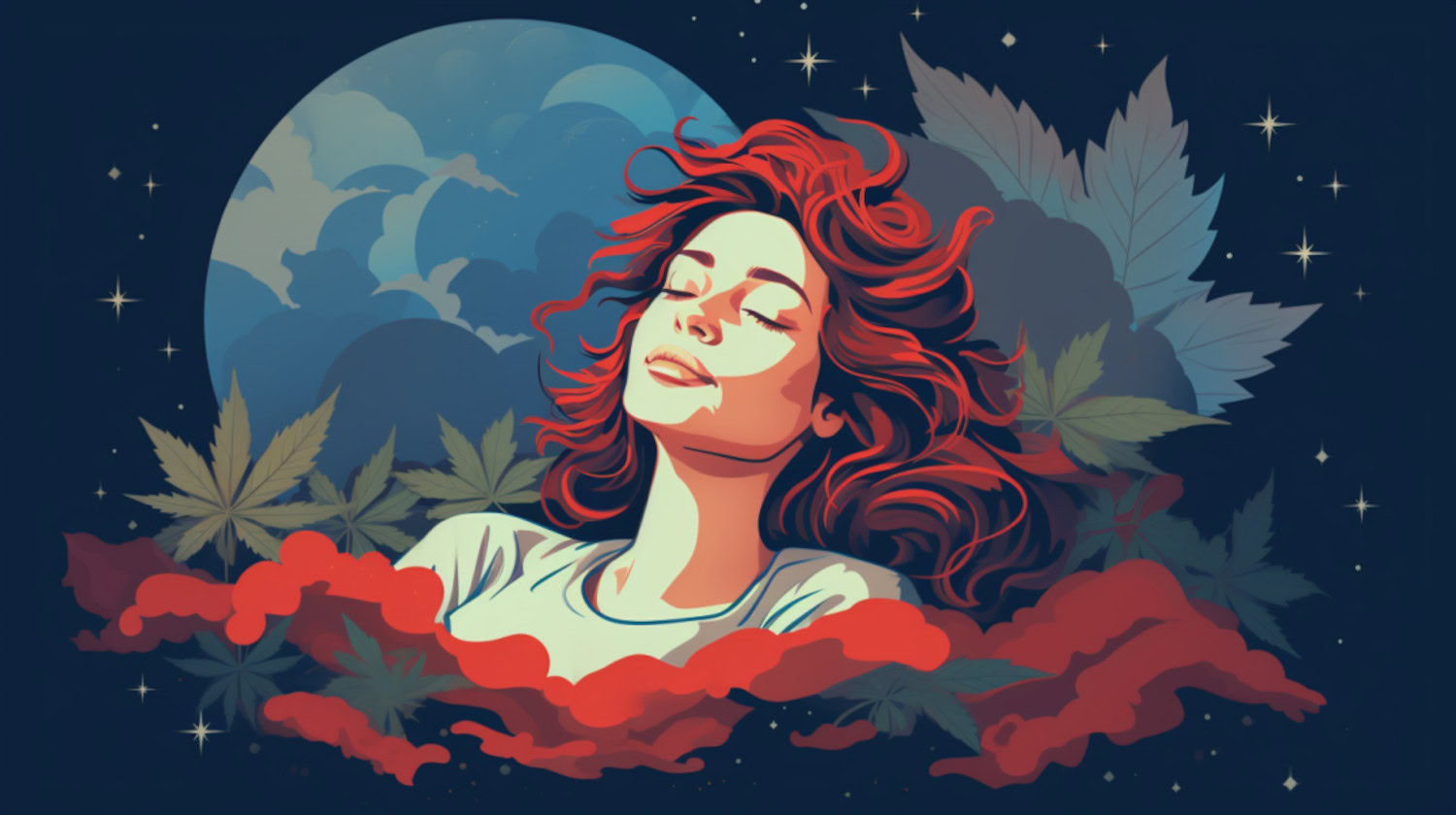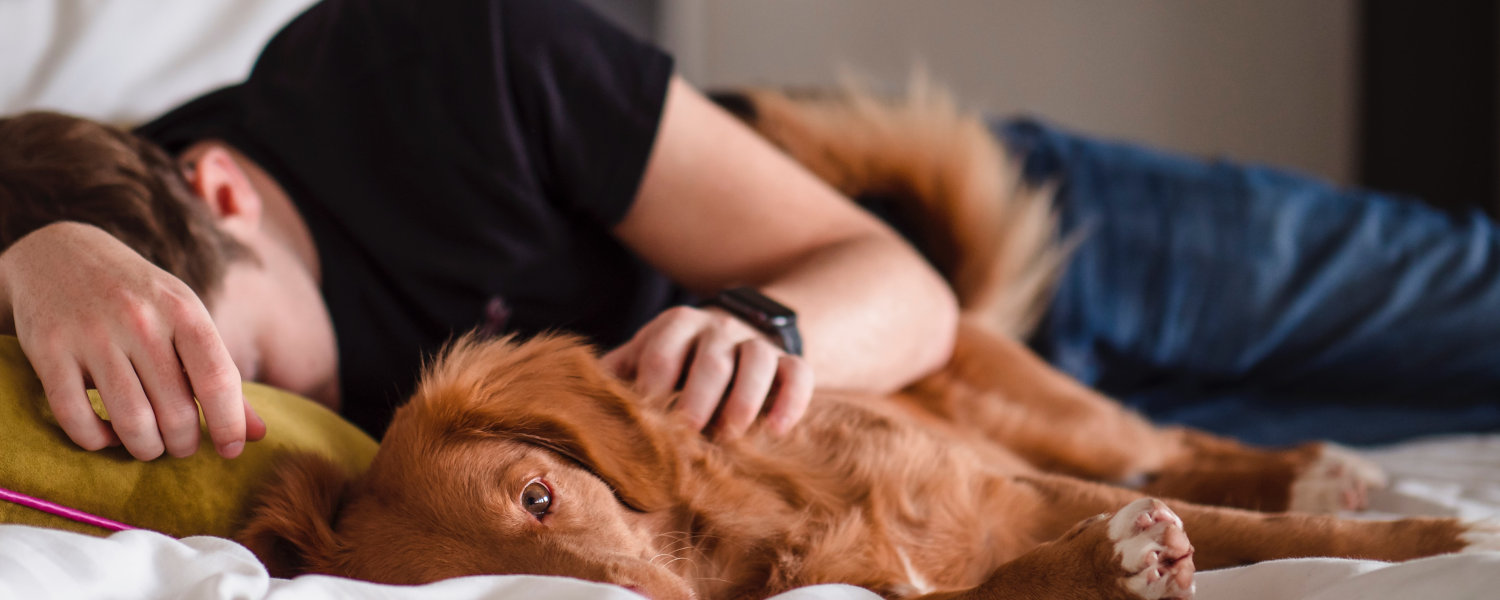In This Article
- What Happens When You Sleep High?
- What Happens to Your Brain When You Sleep High?
- Weed and REM Sleep: How Does Weed Affect Sleep?
- Is it safe to sleep while high?
- Can weed cause insomnia?
- Can I sleep off a high?
- What about when I feel cross-faded?
- Does CBD help with sleep?
- Is there a way to avoid feeling sleepy when I’m high?
- References
Cannabis offers a range of benefits for different people. With the boom in medical cannabis and legalization sweeping the states, more people than ever are using cannabis to treat a range of conditions, including insomnia and other sleep-related issues.
Inducing sleep is one of the most common effects that can come from using cannabis. If you’ve ever taken cannabis and felt sleepy, then you understand this effect. In fact, some people use cannabis specifically to make them tired.
If you’re new to using cannabis, then you may be wondering if it’s safe to sleep while you’re high. While cannabis research is still in its infancy and still rapidly evolving, the consensus here is surprisingly clear.
What Happens When You Sleep High?
While everyone does have a unique cannabis use experience, there are some commonalities that exist for multiple people in regard to sleep. Let’s dive into these and discuss further what happens when you sleep high.
Out of 1,000 individuals who use cannabis, 74% noted that they use cannabis to help induce sleep.1
When sleeping high, you may notice that you fall into a deeper sleep than usual. If you typically wake up multiple times during the night, you may not experience this when you’re sleeping high.
Some people find that it is much easier to fall asleep when they’re high. This is a benefit that many people pursue, as they can get benefits similar to other pharmaceutical options without the possible side effects. For individuals who struggle to fall asleep, cannabis could be the right option.
There hasn’t been significant research that has examined the effects of cannabis on dreams. Some people report that they don’t dream while they’re high, while others report dreams that are more bizarre than usual. While everyone has a unique experience, there was one study that found cannabis helped reduce PTSD-related nightmares.2 This suggests another possible application for cannabis use, so it’s something that should continue to be explored.
While cannabis use can help induce sleep, there’s still much more that needs to be learned about the subject. While it may be possible that cannabis could have adverse long-term effects on sleep patterns, there hasn’t been significant research that has examined the use of long-term cannabis use.3
What Happens to Your Brain When You Sleep High?
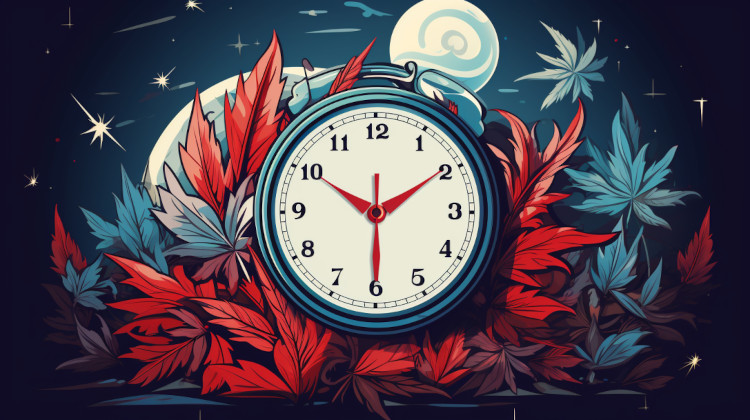
We’ve briefly discussed some of the effects of weed, but what happens to your brain when you sleep high?
The body goes through different stages of sleep throughout the night. These stages of sleep are important to your body's rest and recovery. Making sure that you’re spending the right amount of time in each sleep stage is important so the body can receive the full benefits of sleep.
According to the Sleep Foundation, cannabis increases deep sleep. This is likely the reason why many people wake up feeling refreshed after they’ve used cannabis the night before. On the other hand, THC lessens the amount of time that people spend in REM sleep.4 REM sleep is known for dreaming, so this could potentially be one of the reasons why some people dream less when they use cannabis before bed.
There may be some potential long-term sleep effects that come from cannabis use. There is some evidence that suggests sleep disturbance can occur after someone stops using cannabis chronically. In fact, one review noted that in a study, 67-73% of adults who stopped using cannabis experienced sleep disturbances. The same review found that circadian rhythms were affected in cannabis users.5
What about the effects of CBD on sleep?
CBD dosage likely plays the most significant role. If you’re going to be taking CBD for sleep, then it may be best to avoid especially low doses unless otherwise directed by your doctor. Lower doses have been associated with increased wakefulness in some patients, so think carefully about what dosage is right for you.
Weed and REM Sleep: How Does Weed Affect Sleep?
REM sleep occurs when the brain goes through “active” periods during sleep. REM sleep is associated with higher amounts of dreaming, as well as processing things like emotions and consolidating memories. Getting REM sleep is important to feeling rested, but some people may not get enough of this type of sleep.
There's clearly confusion surrounding the effects of weed and REM sleep, and current research doesn't shed much light on the issue. Interestingly, cannabis decreases both REM time and its density.3
The effects of THC and other cannabinoids on sleep are primarily dependent on the dosage you take. If you’ve taken an extremely low dose, it’s possible that your sleep may not be significantly impacted. However, if you’ve taken a large dose, then you may have noticeable effects on your sleep.4
If you’ve noticed that you have less vivid dreams (or don’t remember your dreams) after you’ve used cannabis, this could be due to changes in your REM sleep. You may notice differences in your dreams if you’re not getting as much REM sleep as you normally would.
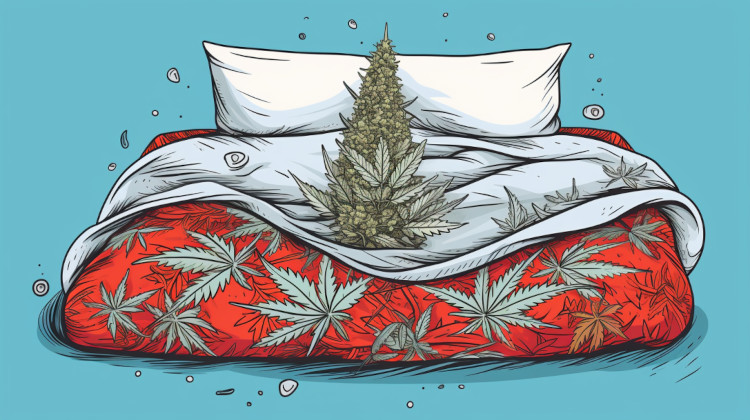
Is it safe to sleep while high?
Yes, it is safe to sleep while high. In fact, many people use cannabis specifically to induce sleep. If you’re worried about sleeping while high, know that there isn’t significant research to suggest any major dangerous effects that could result.
Can weed cause insomnia?
Everybody responds to cannabis differently. There is some research that has shown cannabis discontinuation could lead to sleep disturbances in chronic users. And there are energizing strains that consumers have rated as bad for sleep. It may be unlikely that using cannabis occasionally would lead to insomnia, as research has only a high level of use that has been potentially associated with changes in sleep patterns after stopping use.5
Can I sleep off a high?
If you’ve ever had a bad high, then you understand how important it can be to find ways to cope with the adverse effects of cannabis. Sleeping can be a great way to deal with a bad high, so yes, you definitely can sleep off a high.
What about when I feel cross-faded?
Being cross-faded can be complicated, as the dose of both alcohol and cannabis, along with your overall health and usage history, can impact the effects that you feel. Research has found that while alcohol can make individuals feel sleepy at first, it can disrupt their quality of sleep.6 Because of this, it’s difficult to say how the effects of being cross-faded can impact sleep. However, it’s still safe to sleep while you’re cross-faded.
Does CBD help with sleep?
More research is needed to understand CBD and its effect on the body. It’s possible that CBD can help promote sleep, with 71% of patients in one small study reporting improvements in their sleep or a related condition.4 Adverse effects from trying CBD for sleep are extremely uncommon, so it’s an option that you can consider if you don't want the high that THC can provide.
Is there a way to avoid feeling sleepy when I’m high?
If you’re worried about feeling sleepy when you’re high, you should think about both the dose and the strain you’re using. Some strains are known for being more energizing, while others are known to promote sleepiness. Another important factor to think about is the dose that you’re taking. The higher your dose, the more likely you are to experience sleepiness or, worse, paranoia and anxiety, so it’s best to stick with lower doses if you want to feel more alert.
References
- Bachhuber M, Arnsten JH, Wurm G. Use of Cannabis to Relieve Pain and Promote Sleep by Customers at an Adult Use Dispensary. Journal of Psychoactive Drugs. 2019;51(5):400-404. doi:https://doi.org/10.1080/02791072.2019.1626953
↩︎ - Mamelak M. Nightmares and the Cannabinoids. Current Neuropharmacology. 2020;18(8):754-768. doi:https://doi.org/10.2174/1570159x18666200114142321
↩︎ - Kaul M, Zee PC, Sahni AS. Effects of Cannabinoids on Sleep and their Therapeutic Potential for Sleep Disorders. Neurotherapeutics. 2021;18. doi:https://doi.org/10.1007/s13311-021-01013-w
↩︎ - Vaillancourt R, Gallagher S, Cameron JD, Dhalla R. Cannabis use in patients with insomnia and sleep disorders: Retrospective chart review. Can Pharm J (Ott). 2022;155(3):175-180. Published 2022 Apr 15. doi:10.1177/17151635221089617
↩︎ - Kolla BP, Hayes L, Cox C, Eatwell L, Deyo-Svendsen M, Mansukhani MP. The Effects of Cannabinoids on Sleep. J Prim Care Community Health. 2022;13:21501319221081277. doi:10.1177/21501319221081277
↩︎ - Park SY, Oh MK, Lee BS, et al. The Effects of Alcohol on Quality of Sleep. Korean Journal of Family Medicine. 2015;36(6):294. doi:https://doi.org/10.4082/kjfm.2015.36.6.294
↩︎
The information in this article and any included images or charts are for educational purposes only. This information is neither a substitute for, nor does it replace, professional legal advice or medical advice, diagnosis, or treatment. If you have any concerns or questions about laws, regulations, or your health, you should always consult with an attorney, physician or other licensed professional.

